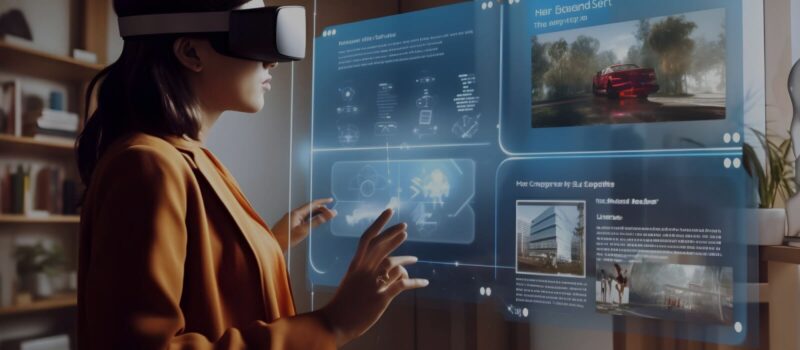Virtual reality is no longer a futuristic concept limited to gaming or entertainment. It has moved into industries like healthcare, real estate, education, retail, and even manufacturing.
As more businesses explore immersive experiences, hiring professional virtual reality (VR) software developers has become one of the smartest investments they can make.
Let’s go through why hiring VR developers is more than a trend – it’s a strategic move that shapes how a brand interacts with users, clients, and data.
VR Developers Bring Specialized Skills You Can’t Fake

Building VR applications isn’t the same as building traditional mobile or desktop software. It requires a blend of programming, 3D modeling, physics simulation, and UX design. Professional VR developers combine technical precision with creative thinking.
They typically master languages and tools like:
- Unity and Unreal Engine: Core platforms for immersive development
- C#, C++, and Python: For scripting and system logic
- 3D modeling tools such as Blender or Maya
- VR SDKs for hardware like Meta Quest, HTC Vive, and PlayStation VR
Without that level of cross-disciplinary skill, even simple applications can feel clunky or disorienting.
Skilled professionals in Virtual Reality understand how to merge digital creativity with technical precision, turning raw concepts into immersive, interactive experiences that feel natural to users.
Faster Product Development and Iteration
Hiring experienced VR developers can drastically shorten the time it takes to go from concept to a working prototype. They know how to design scalable architecture, reuse existing libraries, and test across different VR devices efficiently.
A strong VR team usually follows an agile workflow, where feedback loops are fast and visual. You can literally “walk through” a prototype in a headset within weeks rather than waiting months to see results.
That kind of visual validation helps teams catch usability issues early – saving both time and development costs.
Business Advantages Across Industries

The true strength of hiring VR developers lies in how adaptable their work can be. Here are some industry-specific gains:
| Industry | Example Use Case | Value Created |
| Healthcare | VR surgery simulators or therapy tools | Enhances training and patient outcomes |
| Real Estate | Virtual property tours | Cuts travel costs, boosts engagement |
| Education | Immersive lessons and virtual labs | Increases retention and engagement |
| Retail | Virtual showrooms | Helps customers explore products interactively |
| Manufacturing | VR-based safety training | Reduces accidents and downtime |
Each of those applications requires tailored development, something only trained VR specialists can execute properly.
Realistic Simulations for Training and Safety
One of the biggest reasons companies hire VR developers is the ability to create life-like training simulations without real-world risks. Whether it’s firefighters training for emergencies or surgeons practicing rare procedures, VR can replicate high-stakes situations safely.
Professionals in this field know how to integrate physics, spatial sound, and motion tracking to make scenarios feel authentic. And that realism directly improves learning retention and performance in real settings.
Seamless Integration with Existing Systems

Good VR engineers also think beyond the headset. They know how to connect immersive environments to existing enterprise software – like CRMs, inventory systems, or learning management platforms.
For example, a retailer can integrate VR shopping experiences with live product data. A hospital can sync VR training data with staff performance analytics. Developers who understand both immersive design and backend infrastructure make those bridges work flawlessly.
Access to Continuous Innovation
When you hire dedicated VR developers, you’re not just paying for code – you’re buying access to innovation. The field moves fast, with new hardware and SDK updates rolling out regularly. In-house teams or freelance specialists keep your systems compatible and optimized.
They can also introduce emerging tech like:
- Mixed reality (MR) blends real and virtual elements
- Eye-tracking and haptic feedback for deeper engagement
- AI-powered environments that adapt to user behavior
Keeping up with such advancements in-house is often unrealistic for non-tech companies. A specialized developer stays ahead of that curve for you.
Cost Efficiency in the Long Run
At first glance, hiring VR developers might seem expensive, especially compared to off-the-shelf solutions. But in reality, it often leads to major savings. Custom-built VR apps scale better, run smoother, and can be reused for years.
Instead of paying for multiple training programs, travel costs, or product prototypes, companies can invest once in a VR system that handles all of that virtually. The ROI tends to grow exponentially with each new use case added to the platform.


